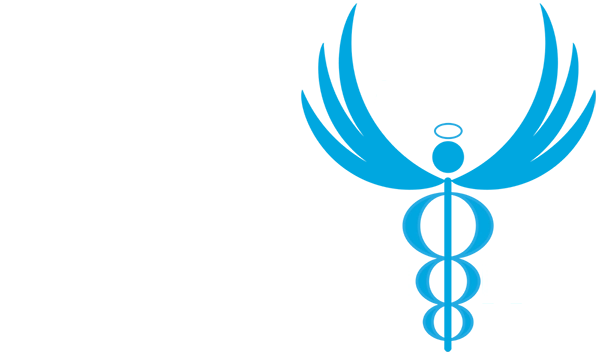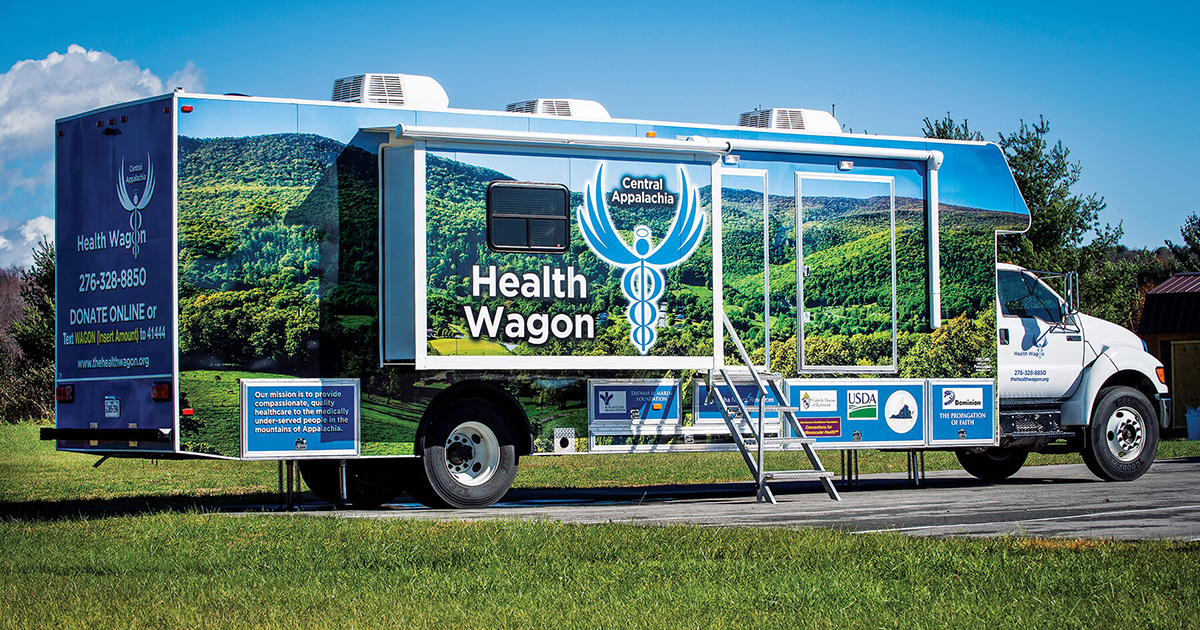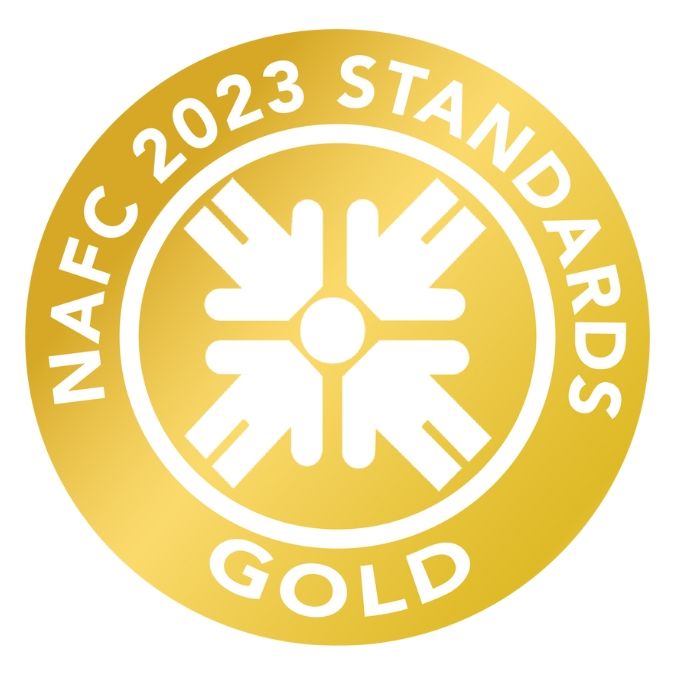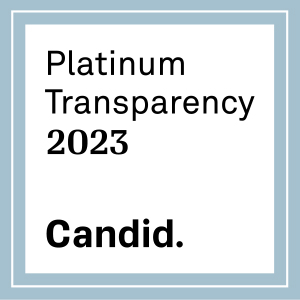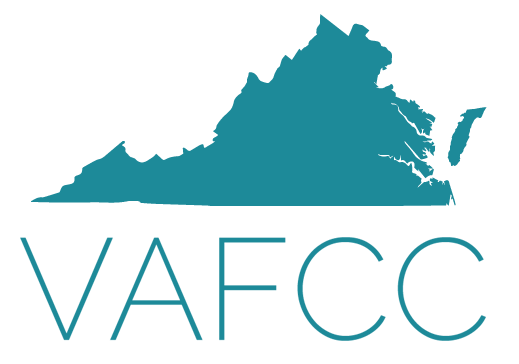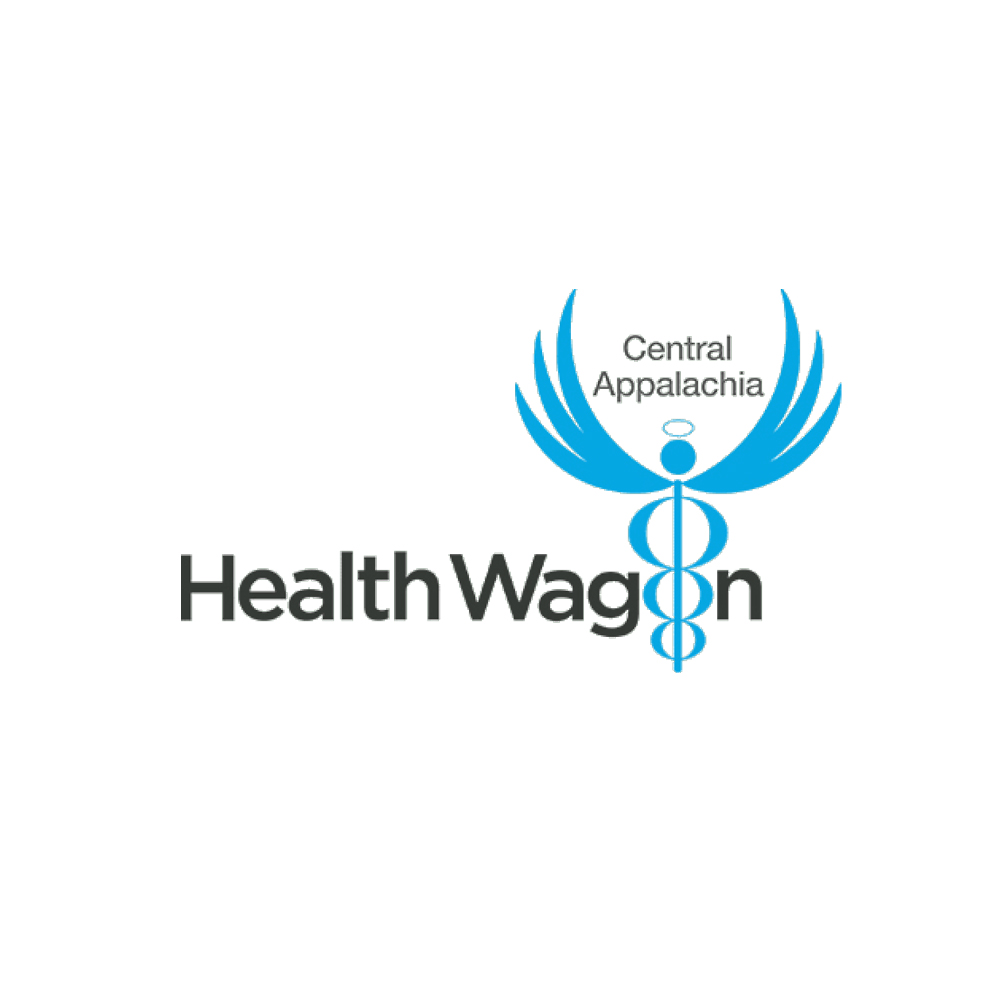March 12, 2018
The Health Wagon continues to provide compassionate, quality health care to the medically underserved people in the mountains of Southwest Virginia. The Health Wagon is the only free clinic available to patients in our six-county service area (Lee, Scott, Wise, Dickenson, Buchanan and Russell Counties). As we strive to meet this need, health care remains in a crisis in our nation. Locally, we are seeing an increase in patients who worked in the coal/mining industry and their families, and we are seeing an increase in patients who cannot afford high insurance premiums and patient pay responsibilities. The Health Wagon has been an integral part of Wise, Lee, Scott, Dickenson, Buchanan and Russell Counties and the City of Norton for more than two decades. The percent of uninsured patients within our total patient census is an astounding 85%.
Thanks to support, especially from the AstraZeneca HealthCare Foundation, the Health Wagon is able to provide a variety of heart health services to patients with the Health Wagon’s Heart Health 1,2,3 program, including blood pressure monitoring, lipid management, liver ultrasounds, cholesterol monitoring (total), body mass index monitoring, weight monitoring, abdominal girth circumference monitoring, liver enzyme monitoring, including AST/ALT. In addition, the program helps support positive behavioral change such as increasing exercise and provides nutritional eating plans.
The Health Wagon is so thankful for AstraZeneca HealthCare Foundation’s support to help the Health Wagon bring cardiovascular healthcare to patients in rural Southwest Virginia. We were able to create a program toolkit for Heart Health 1,2,3 with the 2017 Connections for Cardiovascular HealthSM Program. We hope you will use this toolkit and share it with other health care providers, who share our passion for preventative medicine and chronic disease management.
Sincerely,
Dr. Teresa Gardner Tyson, DNP, MSN, FNP-BC
Executive Director
The Health Wagon
A Brief Statement About St. Mary’s Health Wagon’s Expansion of Heart Health 1,2,3 Toolkit
A Comprehensive Cardiovascular Disease Initiative for Diabetes Mellitus, Metabolic Syndrome and Obesity.
In 2014, St. Mary’s Health Wagon implemented a Connections for Cardiovascular Health program entitled, Heart Health 1,2,3, A Comprehensive Cardiovascular Disease Initiative for Diabetes Mellitus, Metabolic Syndrome and Obesity. This program continues today and aims to reduce the risk of a cardiac event occurring in individuals living with chronic disease and brings healthcare to patients. This program identifies individuals with metabolic syndrome, diabetes mellitus or nonalcoholic fatty liver disease (NAFLD) and correlates the risk for cardiovascular disease related to these afflictions, therefore, minimizing and preventing the risk of a cardiac event through clinical measures and behavioral measures.
With the support of the AstraZeneca HealthCare Foundation, the Health Wagon has reached over 15,000 patients and tracked over 2,500 patients from 2014-2017 through the Heart Health 1,2,3 program.
This toolkit was created to share our program success and act as a guide for health care professionals who aim to alleviate the burden of chronic disease, especially as it relates to cardiovascular health. This toolkit is intended for but isn’t limited to nonprofit professionals, public health officials, and health care practitioners working in rural under served areas. The program and its key components may be adapted/replicated for use in other cardiovascular health programs.
A Brief Overview and History of the Health Wagon
The Health Wagon’s mission is to provide compassionate, quality health care to the medically underserved people in the Mountains of Appalachia. The Health Wagon’s values are inclusiveness, community outreach, collaboration, spirituality and empowerment.
Let us tell you the Health Wagon’s story. The Health Wagon was founded by Sister Bernie Kenny. Sister Bernie was a catholic nun from Massachusetts who began the Health Wagon by treating patients out of her Volkswagen. Today, our average patient is 38 years old. Eighty-five percent of our patients are uninsured. Seventy percent of them have an income of less than $20,000 annually, despite working multiple jobs. This means they make too much money to qualify for Medicaid, but not enough to afford private insurance. Our patients live in desperately poverty-stricken rural Appalachia, where they can’t afford to go to the doctor but can’t afford not to. Many patients face financial and transportation barriers in rural Southwest Virginia. We bring healthcare to patients. The mobility of our health clinic means we can fill the gap, whether they are inline at the food bank or at their job, we bring healthcare to them by a mobile health unit (pictured above).
The Health Wagon, with its mobile clinic and two stationary clinics, has remained a pioneer in the delivery of health care in the central Appalachian region for more than three decades. All services that can be provided in the stationary clinics can be provided on the mobile health unit. The Health Wagon provides Southwest Virginia and the surrounding region with compassionate, high quality health care services. The Health Wagon serves the most vulnerable patients in Central Appalachia who do not have access to health care. Our patients have no insurance or may have insurance but have high co-pays and deductibles. The Health Wagon creates a medical home for patients and gives access to health care services that they would otherwise do without. Daily at the Health Wagon’s mobile or stationary clinic, someone’s life is forever changed or saved because of the services of that the Health Wagon offers. We create access and more importantly hope to those who come through our doors.
The Health Wagon serves individuals and families with free, holistic, integrated health care that is culturally sensitive. We provide primary and preventive care, dental, behavioral health, telehealth, and specialty care. In addition to our routine services, we provide the region with strategically coordinated outreach efforts. We are most proud of our Remote Area Medical – Wise Health Expedition held annually which is the largest medical outreach of its kind in the nation. Individuals in desperate need of healthcare line up days in advance to get needed services such as free, eye, dental and medical care. We have valuable partnerships with academic institutions that allow upcoming physicians, nurse practitioners and nurses to a name a few to have valuable educational experiences and help individuals in dire need of health care. The breadth of our mission, accomplishments and unprecedented community collaboration attest to our commitment to the people in the Appalachian region. Caring and committed partners, including foundations, corporations, civic group, churches and businesses and individuals, support the Health Wagon and our outreaches to make delivery of health care to some of the most disadvantaged and marginalized patients in the nation.
Heart Health 1,2,3 Needs Assessment
The Appalachian region of the United States spans 470 counties and 13 states. Virginia is home to twenty-five of these counties, six of which fall within the Health Wagon’s service area. In Southwest Virginia, the Health Wagon provides care to patients in Buchanan, Dickenson, Lee, Scott, Russell, and Wise Counties. Though a region rich in history, culture, natural resources and beauty, it is characterized by widespread health disparities and limited health infrastructure (Healthy Appalachia Institute, 2015). The Health Wagon aims to alleviate health disparities by providing several avenues of care. The Health Wagon is unique in that this organization brings healthcare to people by mobile health units. In 2013, the Health Wagon initiated its Heart Health 1, 2, 3 Comprehensive Cardiovascular Disease Initiative for Diabetes Mellitus, Metabolic Syndrome, and Obesity program in efforts to improve cardiovascular health in the community. With the support of the AstraZeneca HealthCare Foundation’s Connections for Cardiovascular HealthSM program, the clinic has tracked over 2,500 patients and reached over 15,000 since its inception in 2013.
In Central Appalachia, the heart disease mortality rate is 42 percent higher than the national rate, and 80 of the sub region’s 82 counties have heart disease mortality rates higher than the national rate (ARC, 2017). In Appalachia Virginia, the heart disease mortality rate is 40% higher than compared to non-Appalachian Virginia (ARC,2017). According to the Virginia Department of Health (VDH), heart disease and stroke is the number one killer of Virginians. A significant portion of the Health Wagon’s patients are at increased risk for heart disease due to the presence of chronic conditions, such as diabetes mellitus, metabolic syndrome, and non-alcoholic fatty liver disease (NAFLD).
One out of every eleven people in Virginia has diabetes, which is the seventh leading cause of death in Virginia (VDH, 2014). According to the American Heart Association, adults with diabetes are two to four times more likely to die from heart disease than adults without diabetes. Due to the cluster of metabolic disorders associated with metabolic syndrome, an individual diagnosed with the condition is at higher risk of cardiovascular disease, diabetes, and stroke (AHA, 2017). NAFLD is closely linked to metabolic syndrome, which is especially common in middle-aged adults who are at high risk of heart disease due to such risk factors as obesity and type 2 diabetes. County health data reveal that the percent of adults reporting a BMI of 30 or more is 33% in Wise County, 30% in Dickenson County, 30% in Buchanan County, 33% in Scott County, and 31% in Russell County (County Health and Statistics).
Given the prevalence of these chronic conditions, Heart Health 1,2,3 strives to reduce the risk of a cardiac event occurring in individuals living with one or more of these chronic diseases. This program identifies individuals with metabolic syndrome, diabetes mellitus, or nonalcoholic fatty liver disease (NAFLD) and correlates the risk for cardiovascular disease related to these afflictions. Therefore, minimizing and preventing the risk of a cardiac event through the use of health education, screening, medication management, and evidence-based practices.
Heart Health 1,2,3 Implementation Steps
The following are the key components of St. Mary’s Health Wagon’s Heart Health 1,2,3 program, which may be adapted or replicated for use in other cardiovascular health programs. The program components are a collection of methods and techniques we’ve developed over time and continue to improve upon and refine on an annual basis. The Heart Health 1,2,3 program is tailored to our available resources and the patient population we serve. Therefore, we urge you to customize our program to align with your organization’s resources to improve the health in the communities you serve.
- Leverage community screenings to identify participants to recruit into the program
The Health Wagon identifies patients who are diagnosed with one of the following chronic conditions: diabetes mellitus, metabolic syndrome (diagnosed as dysmetabolic syndrome x), or Non-alcoholic fatty liver disease (NAFLD)
- Patients who are diagnosed with at least one of these conditions are encouraged to enroll into the Heart Health 1, 2, 3 Program.
-
- Appointments are scheduled in advance and the number of patients treated is usually dependent on the location. However, walk-ins are ALWAYS welcome. Generally, fewer patients are seen at locations located closer to the stationary clinics.
- All of the biometric data can be recorded for the Heart Health 1,2,3 program on the mobile health unit. The mobile health units have network access and laptops to utilize and access the electronic health record at remote sites. Blood is drawn and refrigerated until it is transported to a stationary clinic until LabCorp retrieves it.
- Lab work is reviewed by the provider and typically, within a week, a follow-up will be conducted either by phone or a meeting with the provider. When a test is abnormal, we never let a patient fall through the cracks. The Health Wagon is unique in that any test that comes back abnormal, at the mobile unit, at a stationary clinic, or at a health outreach event, is followed up on immediately.
- Providers speak with patients about their lifestyle behaviors and current treatment plans.
- Data is entered directly into the electronic health record, which is updated real-time via a wireless internet service. This helps to reduce transcribing errors.The Health Wagon is bringing health care to patients in Southwest Virginia with the use of the mobile health units. The mobile health unit is an invaluable resource to the clinic and is an important component of the Heart Health 1,2,3 Patients are screened at one of the two stationary clinics, in one of the two mobile health units, at health fairs, and the annual Wise Remote Area Medical Expedition Clinic in Wise, VA. The Health Wagon is unique in that it is the only free clinic that serves the six-county service area and brings healthcare to patients by mobile health units (one is shown below).
- Metabolic syndrome is characterized by having three out of five of the following symptoms:
- Abdominal Obesity
- Elevated Blood Pressure
- Elevated Fasting Plasma Glucose
- High Serum Triglycerides
- Low High-Density Cholesterol
- Initiate a complete cardiac and hepatic workup for patients with a positive diagnosis.
- Electrocardiogram (EKG)
- Ankle/Brachial Indices (ABIs)
- Complete Metabolic Panel
- Hemoglobin A1C (HbA1C)
- Blood Pressure (BP)
- High Sensitivity C-Reactive Protein (hsCRP)
- Liver Ultrasound (as needed)
- Hepatic Panel
- Collect baseline biometric data and track patients progress using the electronic health record (EMR).
- Participants are added to a registry termed “tracked”
- The following metrics are recorded on each visit:
- Abdominal Girth
- Body Mass Index (BMI)
- Blood Glucose
- Blood Pressure
- HbA1C
- hsCRP
- Lipoprotein and Triglyceride Levels
- Weight
- Develop a comprehensive treatment plan, tailored to each patient.
- In accordance with medication, healthy lifestyle choices, including incorporating vegetables and fruit into diet and increasing physical activity, are strongly encouraged.
- Materials and resources from the Center for Disease Control, Virginia Department of Health, American Heart Association, American Diabetes Association are used to educate and inform patients on chronic disease management as well as risk factors associated with unhealthy lifestyle choices (e.g. VDH’s Blood Pressure Self-Management Toolkit).
- Smoking cessation counseling and a chest x-ray is provided to patients who smoke. The Health Wagon’s medical director, who is also a retired pulmonologist, performs x-rays for patients.
- Provide medication management and health education services to participants.
- The PharmD suggests medication alterations that may have a positive effect on patient health outcomes, specifically decreasing lipids and glucose levels.
- The Health Wagon utilizes resources to promote health education in efforts to increase knowledge in the following areas:
- Cardiovascular Disease
- Chronic Condition Management
- Diabetes Management
- Nutrition & Dietary Choices
- Physical Activity
- Smoking Cessation
- The Health Wagon uses a variety of resources. Health education materials used by the clinic are listed on the resource lists included in the toolkit.
- Integrate an evidence-based education program for diabetic patients.
- More information about the DPP can be found on the National Institute of Diabetes and Digestive and Kidney Disease website: niddk.nih.gov.
- Collect biometric data at a three-month follow-up and compare to baseline data.(Although patients may be asked to come in sooner than three months, most patients are made an appointment for three months after their last visit.)
- Participant’s clinical and behavioral measures are tracked, and the treatment plan is altered if needed.
- Consider using a mobile clinic to overcome barriers to health and provide access to care.
- Metabolic syndrome is characterized by having three out of five of the following symptoms:
-

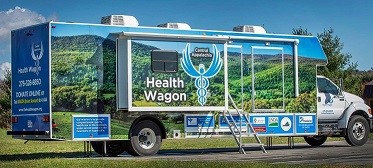
- The mobile health unit travels to predetermined destinations within the Health Wagon service area each month. The mobile health unit travels to eleven sites.
- If a patient prefers to be treated by the mobile health unit, their physical address is used to determine the nearest mobile site then an appointment is scheduled accordingly to the mobile unit availability and the patient’s schedule.
Heart Health 1,2,3 Health Outcomes
Since launching the Heart Health 1,2,3 program in 2013, we’ve reached over 15,000 participants through health fairs, RAM events, clinical appointments, and social media. The program has tracked an astonishing 2,500 participants progress toward improving cardiovascular health measures. The Health Wagon tracked 714 participants in the first year of the program, 1,024 participants in the second year, and 921 participants in the third year. Each year, participants demonstrated improvements in blood pressure, overall cholesterol, weight, and waist circumference. Specific outcomes are provided below.
2014
- 73% of participants had a decrease in BP, lowering the average BP reading from 146/84 to 130/78
- 86% of participants showed a decrease in overall cholesterol
- 63% of participants lost weight
- 91% of participants had a decrease in waist circumference
2015
- 4% of participants had a decrease in BP, lowering the average BP reading from 130/77 to 128/76
- 41% of participants showed a decrease in overall cholesterol, lowering the average from 187.6 to 181.4
- 22% of participants lost weight
- 24% of participants had a decrease in waist circumference, lowering the average from 39 to 37 inches
2016
- 58% of participants had a decrease in BP, lowering the average BP reading from 146/84 to 132/79
- 52% of participants showed a decreased in overall cholesterol, lowering the average level from 214.5 to 191.63
- 46% of participants lost weight, lowering the average weight from 230.2 at baseline to 226.1
- 48% of participants had a decrease in waist circumference, lowering the average from 40.2 to 38.0 inches
Lessons Learned
At the St. Mary’s Health Wagon, we continue to learn and implement new techniques in efforts to improve the success and longevity of the Heart Health 1,2,3 program. Over the past four years, the program has experienced its share of successes and roadblocks along the way. With the help of our dedicated staff and support networks, we strive to reach our program goals and to ensure our patients are receiving the high quality of care they deserve. In this section, we would like to share some of the lessons learned over the past few years that have helped shape our program into the success it is today.
- Incorporating clinical tools like the EMR allow most metrics to be collected without increasing workload for the clinical staff.
- As an organization that has health profession students rotating through on a regular basis, our EMR gives us the ability to collect the necessary health data, even if we haven’t had time to inform them on the specifics of the program.
- Participants may have misconceptions about the affordability of a healthy diet. Clinical staff deem it necessary to alleviate these misconceptions.
- Utilizing large health fairs or events give staff the opportunity to recruit and inform participants of the program and the importance of chronic disease management, specifically heart health.
- Focus on patient compliance. Often, we provide patients with information and resources, but also want to be sure patients understand how to utilize these tools properly.
- Don’t do it alone. We work with various organizations, universities, and medical professionals who volunteer their time and resources.
- Consider how your program should be implemented given the patient population you serve. We serve a rural patient population that spans a large geographic area, therefore delivering health care via the mobile health unit alleviates the need for patients to travel large distances for routine care.
- Ask the patients for feedback. Listen to what patients have to say about the program, they can provide great insight.
References:
American Heart Association. (2018). Cardiovascular Disease & Diabetes Fact Sheet. Retrieved form http://www.heart.org/HEARTORG/Conditions/More/Diabetes/WhyDiabetesMatters/Cardiovascular-Disease-Diabetes_UCM_313865_Article.jsp/#.Wox0-maZMWo
Healthy Appalachia Institute. (2015). Appalachian Telemental Health Network. Referenced from pdf. http://www.healthyappalachia.org
Appalachian Regional Commission. (2017). Health Disparities in Appalachia. Retrieved from https://www.arc.gov/assets/research_reports/Health_Disparities_in_Appalachia_August_2017.pdf
Appalachian Regional Commission. (2017). Health Disparities in Appalachian Virginia Factsheet. Retrieved from https://www.arc.gov/appalachian_region/FactSheets.asp
Mayo Clinic. (2018). Non-alcoholic fatty liver disease fact sheet. Retrieved from https://www.mayoclinic.org/diseases-conditions/nonalcoholic-fatty-liver-disease/symptoms-causes/syc-20354567?p=1
Virginia Department of Health (2014). Diabetes in Virginia Fact Sheet. Retrieved from http://www.vdh.virginia.gov/content/uploads/sites/25/2016/11/DiabetesVa.pdf
Disclosures:
The AstraZeneca HealthCare Foundation is a tax-exempt entity organized under section 501(c)(3) of the Internal Revenue Code. The Foundation is not part of the commercial entity, AstraZeneca Pharmaceuticals.
Connections for Cardiovascular HealthSM program data are self-reported to the Foundation and its evaluation partner. The AstraZeneca HealthCare Foundation and its evaluation partner make no claim as to the accuracy of the data nor can they verify the individual outcome data from which aggregate conclusions are drawn. Grammar, style, form, and function are solely the responsibility of the presenting organization.
Appendices
Appendix A.Smoking Cessation Resource List
Appendix B. Healthy Lifestyle Resource List
Smoking Cessation Resource List
Government Resources
1-800-QUIT-NOW or 1-855-335-3569 (en Español)
A free, phone-based service with educational materials, coaches, a quit plan, and referrals to local resources to help you quit tobacco use.
This HHS Web site provides one-stop access to tobacco-related information, including information on quitting tobacco use, from its various agencies
1-800-QUIT NOW / 1-800-784-8669
QuitNow.net/Virginia
A web site that provides free, accurate information and assistance to help you quit smoking and stay tobacco-free. It also provides links to other sites, such as smokefreeteen and smokefreewomen.
Smoke free smartphone applications that help you track your quit smoking progress, receive motivational reminders, and more. The quitSTART app is a free app make to individuals who want to quit smoking.
FDA 101: Smoking Cessation Products
Identifies FDA-approved products that can help you quit smoking.
Harms of Smoking and Benefits of Quitting
A fact sheet from the National Cancer Institute that summarizes the harmful effects of smoking and short- and long-term benefits of quitting.
Cancer.gov
Other Resources
Guide to quitting smoking
Cancer.org
Information and support to help you quit smoking
Heart.org
Resources to help smokes figure out their reasons for quitting and then take the step of quitting for good
Healthy Lifestyle Resource List
Diet, Nutrition, & Eating Right
Build a healthy plate from the five food groups that make up a healthy diet.
Dietary Guidelines for Americans 2015-2020
Dietary Guidelines for Americans, published jointly by the Department of Health and Human Services (HHS) and the Department of Agriculture (USDA), provides advice about how good dietary habits for people aged 2 years and older can promote health and reduce risk for major chronic diseases.
Learn the basics and benefits and take action.
Find easy-to-read information on food and nutrition.
Calorie King provides resources and services to educate, motivate, and inspire lifelong weight control.
Exercise and Fitness
Weight-loss and Nutrition Myths: How Much Do You Really Know?
This fact sheet published by (NIDDK), Weight-control Information Network (WIN) will help clear up confusion about weight loss, nutrition, and physical activity.
An information service from National Institute of Diabetes and Digestive and Kidney Diseases (NIDDK), Weight-control Information Network (WIN) provides general information, publications, and other resources on weight control, obesity, physical activity, and related nutritional issues for the general public, health professionals, the media, and Congress.
www.niddk.nih.gov/health-information/weight-managment
Get the basics, health check tools, tutorials, the latest news, and more.
www.medlineplus.go
